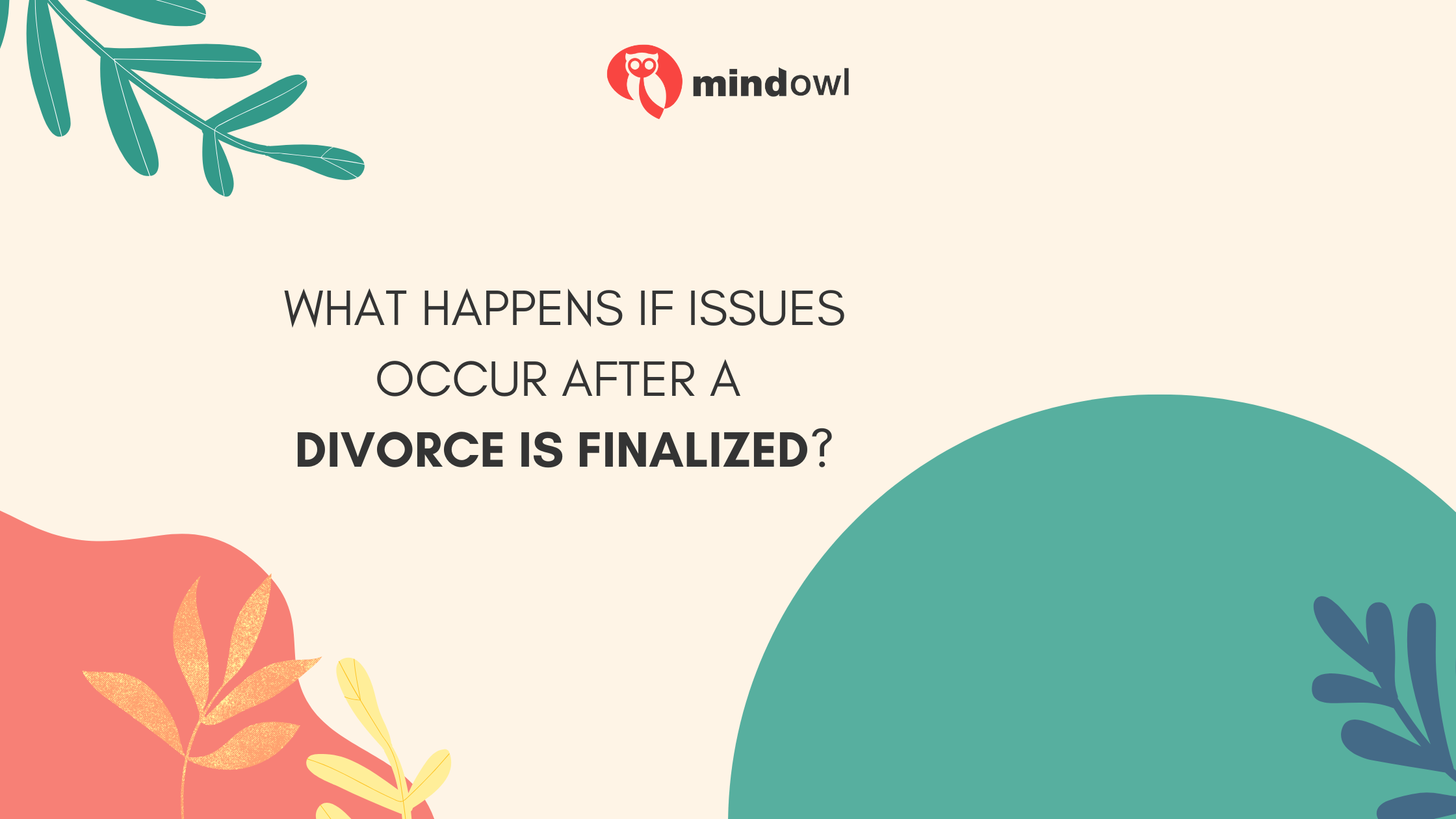Your divorce is finally settled and you’re holding the decree. Now, it’s time to get on with your life. After all, you’re opening a new chapter in your life and this usually means plenty of changes. However, life can throw some curves and this can impact your finalized divorce.
So, what happens if an issue pops up and it’s conflicting with the terms of your divorce? Can you reopen a divorce after it’s finalized? We’re looking at some of the dealing with common post judgment divorce issues that can make it tough to stick with the court’s final decision, along with what you can do to stay out of legal jeopardy.
Can You Change Finalized Divorce Arrangements without Involving the Court?
Being able to stay out of court is probably at the top of your list. Even if both you and your ex agree on the changes, it still doesn’t mean you want to spend some time standing before a judge.
There’s also no guarantee the judge will agree to your proposed changes. So, can you skip heading back to court without running into any legal trouble? The answer to this question is yes and no.
If you and your former partner are on good terms and there’s a level of trust, you may be okay with changing some details without involving the court. For example, if a child pickup and drop-off point is outlined in your divorce decree. You and your partner may not need to get the court involved if you both agree to the change in location.
Swapping child custodial times can also be occasionally handled by making a court appointment. Maybe you have the flu on your weekend and trade with your spouse.
Something to keep in mind even when you’re only making small changes. There must be a strong degree of trust between you and your former spouse. If trust is an issue, it’s probably best to go through the court. This way, your spouse can’t file a claim against you for violating the settled divorce decree.
If you are making a significant change to the divorce decree like where your shared child lives, this is something you need to address in family court.

Common Reasons to Open a Closed Divorce
So, why would you want to open a closed divorce? Chances are this isn’t something you’re looking forward to revisiting. Life can change and this can affect whether or not someone is able to keep their end of the agreement.
Some common reasons divorced couples need to amend their finalized agreements include the following:
- A non-custodial parent may no longer be able to afford child support payments. For example, a job loss or decrease in pay may make it impossible for them to meet this term. The court may decide to review financial records and adjust the amount of financial support.
- The custodial parent is seeking more in child support than initially awarded. This can happen when the parent paying support is suddenly making significantly more income. If the original child support amount is deemed too low, the court may increase it.
- If a child has an increase in medical bills or a decrease, the court may adjust support amounts.
- A parent is relocating and needs to change custody or visitation terms to reflect the move. If the custodial parent is relocating they may need the court’s permission to move with the child. A parent relocating may want to increase or change visitation schedules. This is one of the times when you want to get the court involved. Violating a court-ordered living arrangement agreement for a minor child can have serious legal repercussions.
- The custodial parent isn’t providing a safe and/or stable living place for the minor child. If the non-custodial parent believes their child’s current living arrangements are unsafe, they can petition the court to reopen the custody arrangement.
You can also request changes to a divorce decree for spousal support. This often happens when the spouse receiving financial support remarries or moves in with their partner.
If you can show that your spouse is no longer dependent on your financial support, you may be able to have it reduced or altogether stopped. What you don’t want to do is to stop paying spousal support without the court’s agreement. If you stop paying spousal support, you may end up facing criminal penalties.
Steps for Modifying a Divorce Decree in Connecticut
The steps for modifying a closed divorce agreement are pretty much the same regardless of which state you call home. You’re probably going to want to partner with an experienced divorce attorney.
Remember, you’re going back to court to reopen your divorce, make necessary changes, and close it back up. This can be a rather complicated process and it’s usually best to have some legal guidance.
Request a Court Date
Chances are, you’re requesting a court date before the same judge who finalized your divorce decree. This can be a good thing. The judge is already familiar with your case and this can help everything go a little more smoothly.
Discuss the Changes with Your Former Spouse
Hopefully, you and your former spouse agree on the proposed changes. What you don’t want to do is blindside your ex with proposed amendments in family court. This can get messy and there’s a good chance the judge will send you out for mediation. If you can’t come to an agreement, the judge may decide to leave everything the same.
Even if you and your former spouse can’t reach an agreement, at least they have a heads-up before entering the courtroom.
Finalize the Changes
If the court agrees with the proposed changes, your divorce decree will be modified. Now these changes are what you follow instead of the original agreement.
You Can Amend Closed Divorces
Even though there’s a process, you can amend a finalized divorce. Before filing for a court date, it’s a good idea to talk to an experienced divorce attorney. Your lawyer can help you navigate every step of the legal process and ensure you’re not violating any legal requirements.
MindOwl Founder – My own struggles in life have led me to this path of understanding the human condition. I graduated with a bachelor’s degree in philosophy before completing a master’s degree in psychology at Regent’s University London. I then completed a postgraduate diploma in philosophical counselling before being trained in ACT (Acceptance and commitment therapy).
I’ve spent the last eight years studying the encounter of meditative practices with modern psychology.

